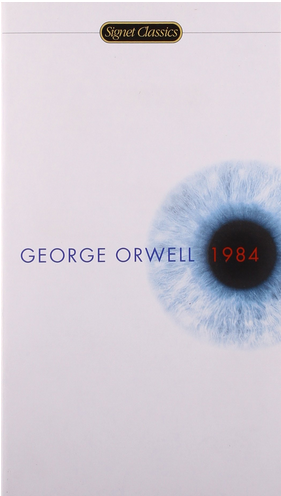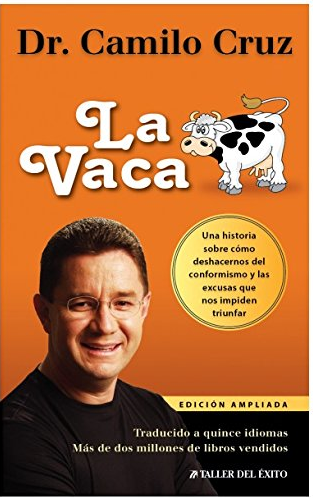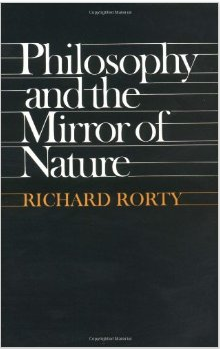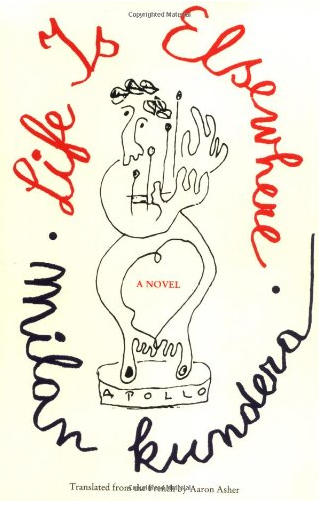Our Community
Get to know our community
Join Translation Journal
Click on the Subscribe button below to receive regular updates.
Svetlana Beloshapkina
Question and Answer
- What is your name, where do you live, and how long have you been an interpreter or translator.
- Svetlana Beloshapkina
- Where do you live
- San Diego, CA
- Years of experience as an interpreter or translator
- 12+
- What made you decide to become a translator or interpreter?
- The love of literature made me want to be a translator and the love of music made me want to be an interpreter. Even as a kid, one of my most favorite activities was to browse through my parents' extensive library, which included books in translation, in search of words in foreign languages that the translator had decided to leave untranslated in the text, adding the translation in a footnote. And my love for the Italian music made me want to learn the language all on my own, the knowledge of which I later applied as a volunteer interpreter for Italian clergy in my church. That's when I realized I loved interpreting, I was good at it, and wanted to continue doing it, along with translating, as a profession.
- List one strength that you think sets you apart from your colleagues.
- I received an over a decade long formal education in theory and practice of languages, earning 3 graduate degrees. I have successfully passed the United Nations Competitive Examination for Russian language translators.
- Name the one thing that you most enjoy in your translating or interpreting career.
- Learning every day
- We all have worked on those not-so-perfect assignments. Write about one such assignment that was not ideal and what you learned from it.
- In one of the recent translation assignments I received a heavily edited text back from the client, in the finalization stage, where my task is either to accept or reject the edits. While the client did not consider this a big issue (they just said "it just happened to be a heavy-handed editor"), my professional pride was hurt a bit, because I felt that many of the edits were preferential, and neither improved my original translation nor really made it worse. It was just a case of synonymy. I then asked the client whether in the future they may provide a glossary, which would eliminate this time-consuming and, therefore, costly, issue. The client replied that while it would have been ideal, but no, they do not have one. I am now considering offering the client my services as a terminologist, which, in the long run, may save them money and headaches to their linguists. I learned that a one-time problem can lead to a permanent solution.
- If you could go back in time to when you were just starting out as a translator or interpreter, what advice would you give to your younger self?
- Don't go it alone. Don't invent the wheel. Turn to your more experienced colleagues for advice and mentorship - most of them will be happy to help!
- Name one resource – such as a phone app, CAT tool, website, and so forth – that you find especially helpful in your translating or interpreting work.
- www. Linguee.com
- What’s the best book you’ve read this year?
- Living with a wild God by Barbara Ehrenreich
From the New York Times bestselling author of Nickel and Dimed comes a brave, frank, and exquisitely written memoir that will change the way you see the world.
Barbara Ehrenreich is one of the most important thinkers of our time. Educated as a scientist, she is an author, journalist, activist, and advocate for social justice. In LIVING WITH A WILD GOD, she recounts her quest-beginning in childhood-to find "the Truth" about the universe and everything else: What's really going on? Why are we here? In middle age, she rediscovered the journal she had kept during her tumultuous adolescence, which records an event so strange, so cataclysmic, that she had never, in all the intervening years, written or spoken about it to anyone. It was the kind of event that people call a "mystical experience"-and, to a steadfast atheist and rationalist, nothing less than shattering.
In LIVING WITH A WILD GOD, Ehrenreich reconstructs her childhood mission, bringing an older woman's wry and erudite perspective to a young girl's impassioned obsession with the questions that, at one point or another, torment us all. The result is both deeply personal and cosmically sweeping-a searing memoir and a profound reflection on science, religion, and the human condition. With her signature combination of intellectual rigor and uninhibited imagination, Ehrenreich offers a true literary achievement-a work that has the power not only to entertain but amaze.
Annette Duarte
Question and Answer
- What is your name?
- Annette Duarte
- Where do you live?
- Panama city, Panama
- What made you decide to become a translator or interpreter?
- My passion for languages and cultures. Being a bridge among them, I may live an infinite learning process and plenty of personal satisfaction. I am a believer that if you work in what you are passionate for, you will be continuously motivated.
- List one strength that you think sets you apart from your colleagues.
- Adaptability
- Name the one thing that you most enjoy in your translating or interpreting career.
- Learning
- We all have worked on those not-so-perfect assignments. Write about one such assignment that was not ideal and what you learned from it.
- My perfect non ideal assignment has been a badly written document in my native language, which is Spanish. I had to correct the original document, to understand it, being careful not to alter the content and purpose of it, and then to translate into English.
- If you could go back in time to when you were just starting out as a translator or interpreter, what advice would you give to your younger self?
- If I could back in time, I will advice to myself to learn as many languages you can. No limits. It is possible.
- What’s the best book you’ve read this year?
- La Vaca(The cow,self-help book with powerful message)
In this fable on "killing" the obstacles that prevent success, a teacher shows his disciple how a destitute family succeeds after overcoming their dependence on a cow as its sole source of income. The readers will identify the metaphorical "cows" that all people have and the crushing need to kill them before someone else does it for them.
Paula Arturo
Question and Answer
- What is your name?
- Paula Arturo
- Where do you live?
- Buenos Aires, Argentina
- How long have you been an interpreter or translator?
- 14 years
- What made you decide to become a translator or interpreter?
- I didn't really set out to become a translator. When I was a child living in the U.S., I often found myself translating and interpreting for my non-English speaking mother or helping other Latin Americans communicate with English speakers. When I moved back to Argentina, my English skills quickly became a valuable asset that helped me stand out in my professional and academic settings. Translation was simply the natural and rational choice for me.
- List one strength that you think sets you apart from your colleagues.
- I have been in the business of translation for over a decade, I have a law degree, and am soon to be a PhD. I think I have managed to add academic solidness to my years of experience. In addition to that, because I was raised in a fully bilingual family in the U.S., I am equally fluent in both my working languages.
- Name the one thing that you most enjoy in your translating or interpreting career.
- Because I come from a country that suffered a brutal military dictatorship in the 1970s, I am strongly committed to the international human rights cause. What I enjoy most about working as a lawyer-linguist in the international arena is knowing that my work contributes to furthering the rule of law, human rights, and democracy in my country and others with a similar history and background.
- We all have worked on those not-so-perfect assignments. Write about one such assignment that was not ideal and what you learned from it.
- One of my first important translation assignments was for a renowned international NGO and it consisted of a protocol that was being proposed to the government of Argentina for taking testimonies from victims of rape, sexual abuse and torture in the trials against the military that followed the reinstitution of democracy. The idea behind the protocol was to promote sensitive techniques for questioning victims in court and preventing victim bashing, which was a serious issue in those proceedings. Unfortunately, though the proposed protocol was very solid, it was not well written in the source language. Thus, interpreting the source text was challenging and the author was not very polite or cooperative when it came to handling questions. What I learned from that experience is that I'd rather have to deal with difficult authors or clients and explain the nature or reason for my questions at the risk of being taken for a fool than to keep quiet and deliver a translation with which I don't feel 100% satisfied. I also learned the importance of not taking things personally, staying calm under pressure, and focusing on the job instead of the circumstances surrounding it.
- If you could go back in time to when you were just starting out as a translator or interpreter, what advice would you give to your younger self?
- I would tell my younger self to eat healthy, exercise, get plenty of sleep, and live a little. I spent my twenties studying hard and working even harder. I kept myself so busy that I sometimes forgot to simple live a little and have some fun. In my thirties, I'm learning to live a more balanced lifestyle.
- Name one resource – such as a phone app, CAT tool, website, and so forth – that you find especially helpful in your translating or interpreting work.
- Black's Law Online is my first stop for legal terms and my CAT tool of choice is Wordfast.
- What’s the best book you’ve read this year?
- The best non-fiction book I've read this year is Philosophy and the Mirror of Nature by Richard Rorty. I share his pragmatic view of the Western Human Rights culture and his concern for ensuring peaceful coexistence even in the face of cultural clashes. As far as fiction, I recently re-read one of my all-time favorite books from my childhood simply to confirm it's still one of the best books I've ever read: 1984, by George Orwell.
|
|
 |
Ebrahim Mousavi
Question and Answer
- What is your name?
- Ebrahim Mousavi
- Where do you live?
- Iran-Tehran
- How long have you been an interpreter or translator?
- 5 years
- What made you decide to become a translator or interpreter?
- I was interested in translation. That's all.
- List one strength that you think sets you apart from your colleagues.
- By all means, trying to ensure that what I've translated is a natural and acceptable one.
- Name the one thing that you most enjoy in your translating or interpreting career.
- I enjoy googling a concept in order to better understand its true meaning.
- We all have worked on those not-so-perfect assignments. Write about one such assignment that was not ideal and what you learned from it.
- There were many of those not-so-perfects. But what I learned from them is that I should understand the essence of a text and its goal to be able to translate it well.
- If you could go back in time to when you were just starting out as a translator or interpreter, what advice would you give to your younger self?
- Read and read and read, about everything you come across because one they you come across them to translate them without knowing much about them.
- Name one resource – such as a phone app, CAT tool, website, and so forth – that you find especially helpful in your translating or interpreting work.
- www.google.com
- What’s the best book you’ve read this year?
- 'Life Is Elswhere'; by Milan Kundera; Translated into Persian.



